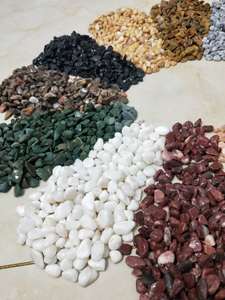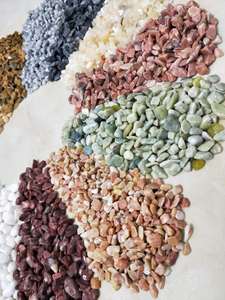
All categories
Featured selections
Trade Assurance
Buyer Central
Help Center
Get the app
Become a supplier

(6955 products available)














































Swimming pool slabs are also known as swimming pool coping or pool decks. These slabs surround the swimming pool, providing a boundary between the water and the pool area. The swimming pool coping not only enhances the aesthetic appeal of the swimming pool but also serves functional purposes. There are several types of swimming pool slabs, which include;
Concrete Pool Decks
Concrete pool slabs are the most common types of swimming pool coping. They are affordable and easily customizable to meet the clients' specifications and requirements. Concrete pool slabs can be easily colored, stamped, and textured to appear like other materials, such as wood or stone. In addition to that, concrete pool decks are durable and require minimal maintenance. However, they may crack under extreme temperatures or heavy pressure.
Natural Stone Pool Decks
The natural stone pool slabs provide a rich and luxurious look, which is hard to match with other materials. They are available in various types of stones, such as travertine, limestone, slate, granite, and marble. Natural stone pool slabs are incredibly durable and can withstand extreme weather conditions. However, they are expensive and require regular maintenance to preserve their beauty.
Porcelain Paver Pool Decks
Porcelain paver pool slabs are an excellent alternative to natural stones. They are highly customizable and can be made to appear like any stone. Additionally, porcelain pavers are durable, slip-resistant, and require minimal maintenance. However, they are relatively expensive compared to other materials.
Wood Pool Decks
Wood pool slabs offer a warm and inviting look to swimming pools. They are available in various types of woods, including Brazilian teak, Ipe, Cumaru, and Garapa. Wooden pool decks are slip-resistant and comfortable to walk on even in high temperatures. Moreover, they are relatively affordable and easy to install. On the flip side, wood pool slabs require regular maintenance to prevent rotting and degradation.
Composite Pool Decks
Composite pool slabs are made from a mixture of recycled wood and plastic materials. They mimic the appearance of natural wood but do not require the same level of upkeep. Composite pool decks are durable, splinter-free, and resistant to moisture, insects, and extreme weather conditions. Nonetheless, they are relatively expensive compared to other materials.
Swimming pool slabs are versatile and can be used in different scenarios. Here are a few of them:
Residential pools
Swimming pool slabs are essential in residential settings. Homeowners use them when constructing in-ground pools. They provide a strong base that can withstand regular use and environmental factors. Pool slabs also enhance the aesthetics of residential pools. Homeowners often choose decorative options and designs that complement their homes.
Commercial pools
Swimming pool slabs are widely used in commercial settings. Hotels and resorts use pool slabs when constructing swimming pools for their guests. These establishments aim to create attractive and durable pools that enhance the overall guest experience. Waterparks are another commercial setting that uses swimming pool slabs. They construct pools with different features and depths to cater to various age groups. Pool slabs provide a safe and durable base for all kinds of water activities.
Public and recreational facilities
Public and recreational facilities also use swimming pool slabs. Schools and universities use pool slabs for their sports facilities. The pool slabs provide a consistent surface for training and competitive events. Community centers and parks often feature swimming pools with pool slabs. These facilities provide a place for people to cool off and enjoy water activities during hot weather.
Aquatic centers and specialty pools
Aquatic centers and specialty pools also use swimming pool slabs. Aquatic centers often feature multiple pools with different purposes. These facilities need swimming pool slabs that can accommodate everything from swimming lessons to competitive events to recreational activities. Specialty pools, such as therapy pools and saltwater pools, also require pool slabs. They provide a stable base that can withstand the unique conditions of these specialty pools.
When selecting swimming pool slabs, several factors must be considered to ensure the right fit for specific needs and preferences. Here are the key factors to consider:
Material Compatibility
Buyers must consider the material of the swimming pool slabs and its compatibility with the existing pool structure or the type of pool they plan to install. Whether concrete, porcelain, natural stone, or fiberglass, each material has unique characteristics, durability levels, maintenance requirements, and aesthetic appeals. For instance, concrete pool coping slabs can be customized easily, while porcelain slabs are known for their longevity and low maintenance.
Slip Resistance
Safety is crucial, especially in areas around the pool. Therefore, buyers should look for swimming pool slabs with slip-resistant surfaces, particularly in regions with high humidity, where the pool deck is likely to become slippery. Textured finishes or materials with inherent slip resistance, such as natural stone, can provide added safety.
Aesthetic and Design Flexibility
Buyers should think about the visual appeal they wish to achieve and how the pool slabs will complement the overall landscape. There are numerous designs, colors, and finishes to choose from. For example, travertine pool slabs offer a classic look with excellent thermal properties, making them a popular choice for many homeowners. On the other hand, modern settings may benefit from the sleek appearance of porcelain slabs.
Durability and Maintenance
Buyers must assess the durability of the swimming pool slabs and their resistance to environmental factors such as UV radiation, temperature changes, and chemical exposure. Some materials, like granite or porcelain, are highly durable and require minimal maintenance. Conversely, others, such as natural stone, may need regular sealing to maintain their appearance and longevity.
Installation and Cost Considerations
Finally, buyers should consider the installation process and associated costs. Some swimming pool slabs may require professional installation, while others can be installed DIY. Additionally, the long-term costs, including maintenance and potential replacement needs, should be factored in. Although high-quality materials may have a higher upfront cost, they often provide better value over time due to their durability and reduced maintenance needs.
Durability
Swimming pool slabs are long-lasting and can resist severe weather, heavy use, and normal wear and tear. They provide stable support for the pool for many years with little maintenance.
Slip Resistance
Many pool slabs include textured surfaces or slip-resistant additives to prevent slipping accidents around the pool area, making them safe for swimmers and guests.
Ease of Maintenance
The swimming pool slabs require relatively little maintenance. Simple cleaning methods like pressure washing or using mild detergents keep the surface looking great and extend its lifespan.
Functions
Aesthetic Appeal
Swimming pool slabs come in various colors, patterns, and materials, enhancing the visual appeal of the pool area and complementing the overall design of the property.
Structural Support
Pool slabs provide the pool structure with the necessary support. The likelihood of shifting, cracking, or collapsing is decreased as the pool slab bears the weight of the water and the pool's users.
Water Drainage
Properly designed swimming pool slabs facilitate water drainage, preventing water accumulation around the pool area. They help maintain the integrity of the pool and surrounding deck by directing water away.
Material Selection
Swimming pool slabs can be made from various materials, including concrete, porcelain, stone, and composite materials. Each material offers unique aesthetic and functional benefits, allowing for customized pool designs.
Surface Treatment
The surface of swimming pool slabs can undergo various treatments to enhance their appearance and functionality. These include polishing for a sleek finish, texturing for added grip, and sealing for increased protection against stains and weather damage.
Drainage Solutions
Swimming pool slabs are designed with effective drainage solutions to prevent water pooling on the surface. The slabs can be slightly sloped towards designated drainage points or gutters to facilitate water flow away from the pool area.
Q1: What are the most appropriate kinds of slabs for the swimming pool?
A1: The best swimming pool slabs are the porcelain slabs. They are eco-friendly, durable, and aesthetically pleasing. Moreover, they are slip-resistant and have a long life span.
Q2: What is the process of installing swimming pool slabs?
A2: The installation of swimming pool slabs begins with proper planning and preparing the site. Once the plan is set, the appropriate materials are selected and cut to the desired size. Finally, the swimming pool slabs are laid and grouted.
Q3: How does one maintain swimming pool slabs?
A3: Maintaining swimming pool slabs is easy. One needs to regularly clean the swimming pool slabs with water and mild detergents to remove dirt. Also, inspect the joints and edges and seal them if necessary.
Q4: What should one consider when choosing swimming pool slabs?
A4: Several factors must be considered when selecting swimming pool slabs, such as cost, slip resistance, and aesthetics. Also, the durability and maintenance level of the pool slabs should be considered.
Q5: Can swimming pool slabs be customized?
A5: Yes, swimming pool slabs can be customized according to the buyer's specifications. They can request specific sizes, designs, and patterns.